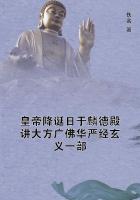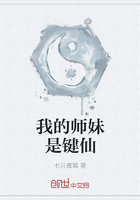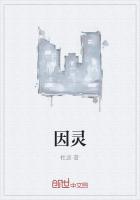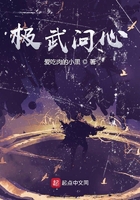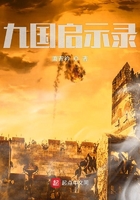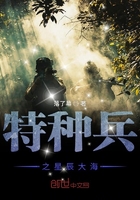His heavy shoes were hobnailed like those of the Chouans; leather leggings came to his knees covering the ends of his breeches of very coarse drilling, and completing a costume which showed off a slender and well-poised figure of medium height.Furious that the Blues should thus have approached him, he pulled his hat again over his face and sprang towards them.But he was instantly surrounded by Marche-a-Terre and several Chouans.Hulot thought he perceived between the heads which clustered about this young leader, a broad red ribbon worn across his chest.The eyes of the commandant, caught by this royal decoration (then almost forgotten by republicans), turned quickly to the young man's face, which, however, he soon lost sight of under the necessity of controlling and protecting his own little troop.Though he had barely time to notice a pair of brilliant eyes (the color of which escaped him), fair hair and delicate features bronzed by the sun, he was much struck by the dazzling whiteness of the neck, relieved by a black cravat carelessly knotted.The fiery attitude of the young leader proved him to be a soldier of the stamp of those who bring a certain conventional poesy into battle.His well-gloved hand waved above his head a sword which gleamed in the sunlight.His whole person gave an impression both of elegance and strength.An air of passionate self-devotion, enhanced by the charms of youth and distinguished manners, made this /emigre/ a graceful image of the French /noblesse/.He presented a strong contrast to Hulot, who, ten feet distant from him, was quite as vivid an image of the vigorous Republic for which the old soldier was fighting; his stern face, his well-worn blue uniform with its shabby red facings and its blackened epaulettes hanging back of his shoulders, being visible signs of its needs and character.
The graceful attitude and expression of the young man were not lost on the commandant, who exclaimed as he pressed towards him: "Come on, opera-dancer, come on, and let me crush you!"The royalist leader, provoked by his momentary disadvantage, advanced with an angry movement, but at the same moment the men who were about him rushed forward and flung themselves with fury on the Blues.
Suddenly a soft, clear voice was heard above the din of battle saying:
"Here died Saint-Lescure! Shall we not avenge him?"At the magic words the efforts of the Chouans became terrible, and the soldiers of the Republic had great difficulty in maintaining themselves without breaking their little line of battle.
"If he wasn't a young man," thought Hulot, as he retreated step by step, "we shouldn't have been attacked in this way.Who ever heard of the Chouans fighting an open battle? Well, all the better! they won't shoot us off like dogs along the road." Then, raising his voice till it echoed through the woods, he exclaimed, "Come on, my men! Shall we let ourselves be /fooled/ by those brigands?"The word here given is but a feeble equivalent of the one the brave commandant used; but every veteran can substitute the real one, which was far more soldierly in character.
"Gerard! Merle!" added Hulot, "call in your men, form them into a battalion, take the rear, fire upon those dogs, and let's make an end of this!"The order was difficult to obey, for the young chief, hearing Hulot's voice, cried out: "By Saint Anne of Auray, don't let them get away!
Spread out, spread out, my lads!" and each of the two wings of the Blues was followed by Chouans who were fully as obstinate and far superior in numbers.The Republicans were surrounded on all sides by the Goatskins uttering their savage cries, which were more like howls.
"Hold your tongues, gentlemen," cried Beau-Pied; "we can't hear ourselves be killed."This jest revived the courage of the Blues.Instead of fighting only at one point, the Republicans spread themselves to three different points on the table-land of La Pelerine, and the rattle of musketry woke all the echoes of the valleys, hitherto so peaceful beneath it.
Victory might have remained doubtful for many hours, or the fight might have come to an end for want of combatants, for Blues and Chouans were equally brave and obstinate.Each side was growing more and more incensed, when the sound of a drum in the distance told that the body of men must be crossing the valley of Couesnon.
"There's the National Guard of Fougeres!" cried Gudin, in a loud voice; "my man has brought them."The words reached the ears of the young leader of the Chouans and his ferocious aide-de-camp, and the royalists made a hasty retrograde movement, checked, however, by a brutal shout from Marche-a-Terre.


